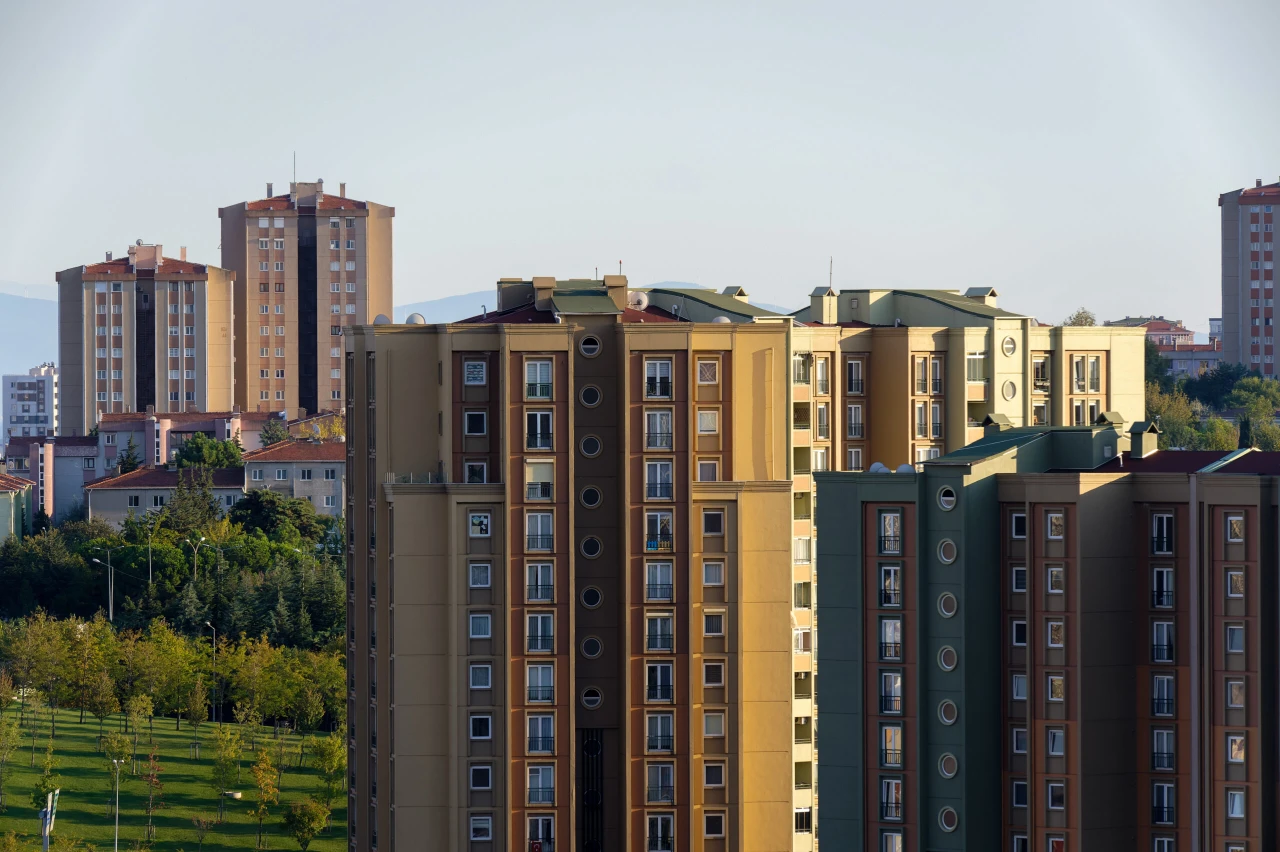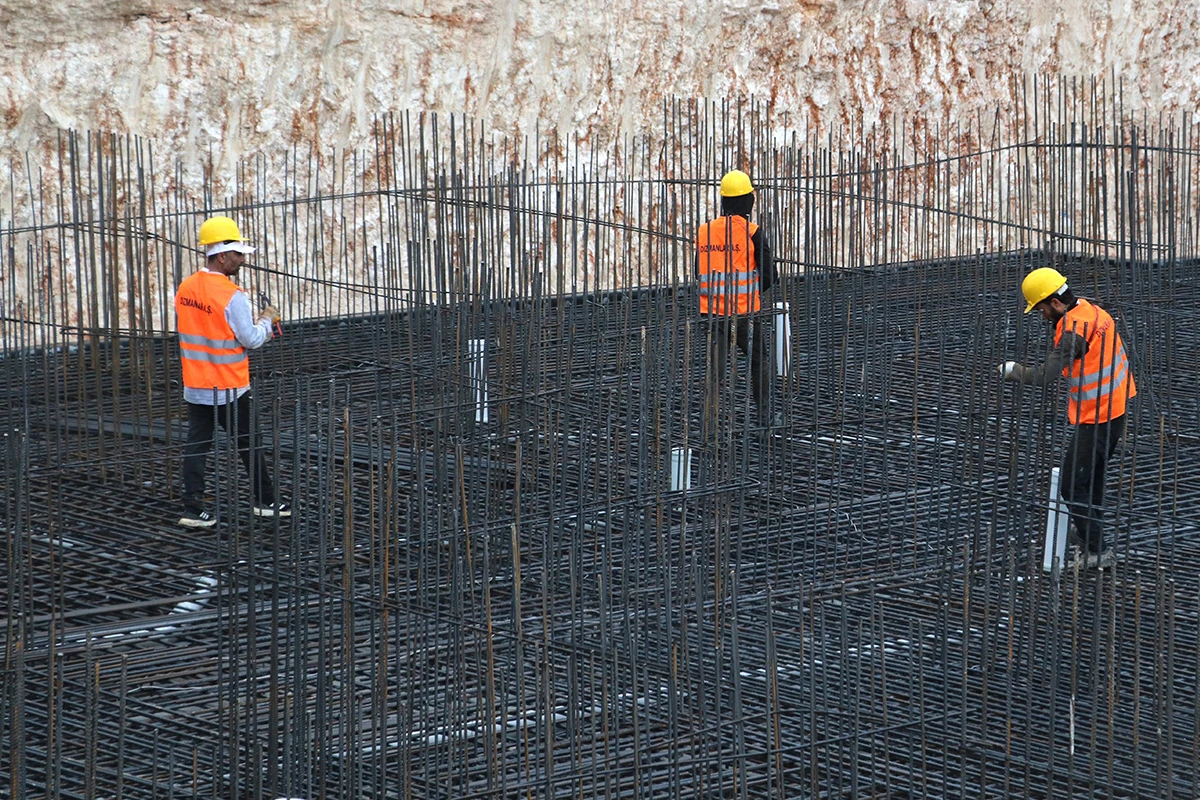Turkish real estate sector begins 2025 with demand boom in house sales
 A cluster of high-rise residential buildings stands in a row, reflecting modern urban development in Istanbul, Türkiye. (Adobe Stock Photo)
A cluster of high-rise residential buildings stands in a row, reflecting modern urban development in Istanbul, Türkiye. (Adobe Stock Photo)
House sales in Türkiye surged by 39.7% year-on-year in January, reaching 112,173 units—the second-highest January figure on record, according to the Turkish Statistical Institute (TurkStat).
The TurkStat data showed that January’s performance was surpassed only by the 113,615 units sold in January 2020. Of the total sales last month, 32,785 were newly built homes, while 79,388 were second-hand properties.
Despite high interest rates, mortgage-backed sales skyrocketed by 182.8% year-on-year, with 16,726 homes purchased using bank loans.
Türkiye’s construction sector also expanded by 14.4% in December 2024 compared to the same period a year earlier. According to the TurkStat data, building construction increased by 17.6%, non-residential construction rose by 11.1%, and private construction activities saw a 6.2% uptick.

On the other hand, Turkish real estate platform Emlakjet’s January 2025 Return Index (GDE) highlighted a continued decline in property investment payback periods across major cities.
The payback period in Ankara fell to 12 years, marking the shortest duration among metropolitan areas. The payback period in Izmir and Istanbul decreased to 16 years, making these cities more attractive to investors.
Compared to the same month last year, the payback period was shortened by 14% in Ankara, 11% in Izmir, and 6% in Istanbul. Among cities with the shortest payback periods, Ankara, Tekirdag, and Mersin led the list, with Tekirdag matching Ankara’s 12-year period and Mersin holding steady at 12 years.
Further interest cuts to boost real estate
Commenting on the reports, real estate representatives expressed optimism about the sector’s performance and underscored the support of policy measures to sustain the momentum.
“Although sales have declined compared to December, they increased year-on-year, and we believe 2025 has started well,” said Ramadan Kumova, chairperson of the Turkish Real Estate Developers and Investors Association (KONUTDER).

“To reach ideal levels and meet the demand, necessary steps must be taken, including lowering (mortgage) interest rates to around 1%.” He pointed out that, despite the sharp rise in mortgage sales, only 14.9% of transactions were financed through loans, compared to a more typical 50% share in healthier market conditions.
Hakan Sisik, chairperson of the Anatolian Side Contractors Association (AYIDER), noted a shift from renting to homeownership as people seek to avoid escalating rents and inflation. “While cash buyers benefit from discounts, many still choose loans despite high interest rates to escape rising rents,” he said. “Smaller homes are gaining popularity, and if this momentum continues, we might surpass 1.5 million home sales this year.”
Ismail Ozcan, president of the Real Estate Marketing and Sales Professionals Association (GAPAS), described the January figures as surprising, attributing the rise to urban transformation projects and pre-sold developments.
“Second-hand sales are more than double new-home sales, driven largely by high rents. People prefer paying installments for their own homes rather than rent. If expected rate cuts materialize, the market could gain further momentum.
However, production must increase, as available inventory is running low.” Ozcan explained.



